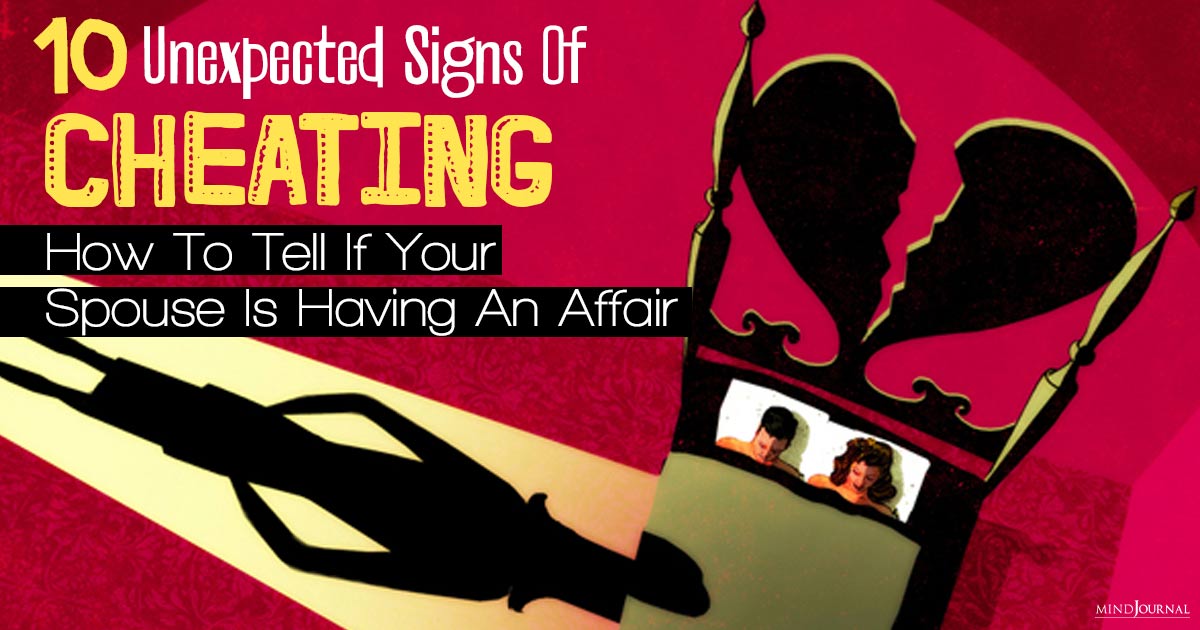Cheating is one of the most detrimental behaviors for the survival of a relationship. Infidelity is a violation of trust that can damage the commitment romantic partners have made to one another.
Sharpe, Walter, and Goren (2013) note that “Infidelity is a serious relationship issue, as it not only reflects instability within the primary relationship but also may have intense negative consequences for both individuals in the dyad” (p. 644). The act of cheating creates tension between partners and may destroy the relationship.
Even the perception that a partner may be cheating is also extremely detrimental. Suspicion often creates a rift between a pair. Therefore, it is important to know how one’s partner views cheating and what behavior they believe violates the terms of a committed relationship.
Those who have been cheated on in the past may be more suspicious of partners, as they may be worried that the past may repeat itself. However, it doesn’t mean that they are also more likely to negatively judge individuals they are not romantically entangled with. Sharpe et al. (2013) conducted a study to explore how gender, previous cheating experience, and the gender of characters in vignettes would influence participants’ attitudes towards extradyadic behaviors.

The researchers studied 320 undergraduates from a college in the Southwestern United States and found that both men and women who had cheated on a partner in the past rated hypothetical vignette characters who were the same gender as they were as more forgivable than a character of the opposite gender who had cheated. Specifically, men who had cheated were both the most accepting and forgiving of males, and women who had cheated were more accepting and forgiving of a female character.
The researchers hypothesized that their result lends evidence to the idea that those with cheating experience express gender-biased favorable attitudes toward infidelity to alleviate potential cognitive dissonance. Essentially, a person who has cheated will need to excuse the same behavior in another individual similar to himself or herself. If not, the cheater would experience tension as a result of judging others for actions he or she has engaged in.
Related: 11 Signs It’s An Emotionally Abusive Relationship
1. Cheating Behaviors
A descriptive study was conducted in my lab to examine people’s attitudes toward infidelity. For this study, 773 participants were recruited using a snowball sampling technique. The majority of the sample was female (77.7 percent), and between the ages of 18 to 34 (73.9 percent).
From the sample of 773 participants, 66.9 percent reported that they never cheated on a romantic partner, while 33.1 percent had. Of those who answered yes, a majority (79.7 percent) reported that they had cheated one to four times. Regarding their reasons for cheating, 71.9 percent said that it was because they were not emotionally satisfied in the relationship, 40.6 percent reported that they were not sexually satisfied, and 8.2 percent reported that they were not financially satisfied by their partners.
The other 23.4 percent selected “other,” from which three common themes emerged — immaturity, opportunity value, and knowledge that the relationship was ending. Relating to the theme of immaturity, many participants noted that they were too young to take seriously the relationship in which they cheated on a partner.

Regarding opportunity value, many stated simply that the option to have sex with another attractive person presented itself. Finally, many participants indicated that they cheated because they already knew that their current relationship was not going to continue for a considerably longer amount of time.
Reversing the situation, 53.7 percent of the sample reported being cheated on by a romantic partner and 46.3 percent reported never having been cheated on. Of those who had experienced infidelity, 78.4 percent had knowledge that they had been cheated on approximately one to four times. Most (63.2 percent) were not told the reason why their partners had cheated.

2. Attitudes Toward Cheating
Participants were also given the Perceptions of Dating Infidelity Scale (PDIS; Wilson, Mattingly, Clark, Weidler, & Bequette, 2011). This measure assessed the subjects’ attitudes toward different behaviors that may constitute cheating. Sample behaviors include dancing with someone other than your partner, dating someone other than your partner, etc.
The data were analyzed to determine if there was a difference in perceptions of these behaviors between individuals who had cheated on their partners and those who had not. Interestingly, there was no difference: Those who had and had not cheated viewed the behaviors in a similar manner. This finding contradicts previous research which has shown that those who have cheated on partners in the past also have more permissive attitudes towards cheating (Drake & McCabe, 2000).
Related: 8 Things Love Addicts Do To Control Their Partner From Leaving Them
There was, however, a significant difference between those who had been cheated on by a partner and those who had not: Those who had been cheated on before were much more likely to view their partner’s behaviors with others as cheating. Therefore, it seems as if the past can influence our present beliefs as we fear that it may repeat itself.
Examining infidelity and which behaviors constitute cheating can help couples better understand what will and will not be tolerated by a partner. It can also potentially encourage a conversation of how to behave in social situations with others.
References: Drake, C. R., & McCabe, M. P. (2000). Extra relationship involvement among heterosexual males: An explanation based on the theory of planned behavior, relationship quality, and past behavior. Journal of Applied Social Psychology, 30, 1421-1439. Sharpe, D. I., Walters, A. S., & Goren, M. J. (2013). Effect of cheating experience on attitudes toward infidelity. Sexuality & Culture: An Interdisciplinary Quarterly, 17(4), 643-658. doi:10.1007/s12119-013-9169-2 Wilson, K., Mattingly, B. A., Clark, E. M., Weidler, D. J., & Bequette, A. W. (2011). The gray area: Exploring attitudes toward infidelity and the development of the Perceptions of Dating Infidelity Scale. The Journal of Social Psychology, 151(1), 63-86.
Written by: Marisa T. Cohen For more information about Dr. Marisa T. Cohen and her work, please visit her Website: www.marisatcohen.com Originally appeared on: Psychology Today Republished with permission










Leave a Reply